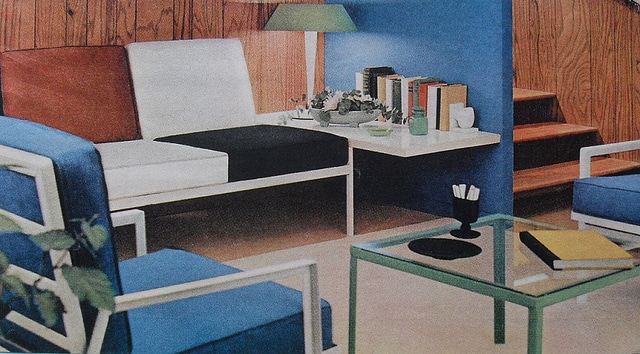Recognizing Minimalism: Strategies for Minimizing Clutter and Enhancing Clarity in Everyday Living
Minimalism is significantly acknowledged as a viable technique to boosting quality and emphasis in today's chaotic globe. By systematically reviewing our possessions and prioritizing intentionality, we can produce rooms that not just show our worths yet also promote mental well-being. Employing techniques such as the "Four-Box" technique can assist in an extra organized environment, yet the real difficulty lies in growing a minimal state of mind that maintains these initiatives. Exploring the nuances of this viewpoint may expose shocking understandings right into how you can transform your everyday life. What might you uncover when you embrace this intentional simpleness?
Defining Minimalism and Its Benefits
Specifying minimalism entails understanding it as a way of life option that highlights simpleness and intentionality in both physical possessions and day-to-day routines. At its core, minimalism urges individuals to prioritize what absolutely matters, enabling for a much more meaningful and concentrated existence. By stripping away the non-essential, minimalism welcomes individuals to engage deeply with their experiences and environments.
The advantages of adopting a minimal strategy are diverse. It promotes mental quality, as lowering clutter in one's environment can lead to reduced disturbances and anxiety. When bordered by less ownerships, individuals typically report improved concentration and improved performance. Minimalism promotes financial liberty; by prioritizing requirements over desires, people can make even more informed buying decisions, leading to prospective financial savings and decreased financial obligation. A minimal way of life can generate psychological advantages, as it urges people to cultivate gratefulness for what they have rather than yearning for a lot more.
Eventually, minimalism is not merely about material reduction but entails an all natural change in viewpoint, promoting a life defined by purpose, gratification, and equilibrium. Accepting this lifestyle can bring about profound modifications in exactly how people regard and communicate with the globe around them.
Evaluating Your Present Mess
Clutter typically manifests as an overwhelming buildup of products that no longer serve an objective, creating a barrier to achieving a minimal way of life. To successfully examine your existing clutter, it is necessary to embrace a systematic approach. Begin by determining the areas in your space that really feel overwhelming or disorderly. Take note of specific categories of items, such as apparel, books, or kitchenware, as this will assist you understand the extent of the clutter.

In addition, think about the regularity of usage for each product. Ultimately, comprehending your current mess is a critical action toward embracing minimalism and boosting quality in your daily living.
:max_bytes(150000):strip_icc()/Warmminimalismlivingroomwithcouch-054286efe5bb45898a4d14b08a979154.jpg)
Practical Decluttering Techniques
Having examined your current clutter, the next action is to execute useful decluttering strategies that help with an even more arranged living room. Minimalism. One effective technique is the "Four-Box" method, where you assign four boxes identified: maintain, donate, trash, and relocate. This approach encourages fast decision-making and makes certain items are categorized properly
An additional approach is the "One in, One out" guideline, which states that for each new product gotten, an existing item must be removed. This concept helps keep balance and prevents buildup gradually. Additionally, consider the "30-Day Minimalism Video Game," where you remove one thing on the first day, two on the second, and so forth, cumulatively promoting a feeling of success.
Limitation yourself to a particular number of cherished items, allowing you to appreciate their relevance without frustrating your space. By utilizing these strategies, you can develop a much more reliable and peaceful living a knockout post area, inevitably improving clarity in your everyday life.
Creating Intentional Spaces
Creating deliberate spaces entails a thoughtful technique to just how we design and organize our environments, making sure each area serves a specific purpose and mirrors our worths. This practice is vital in growing a sense of clarity Discover More Here and purpose in our day-to-day lives. By seriously evaluating the feature of each room, we can remove diversions and boost our total wellness.
To develop deliberate spaces, begin by identifying the main activities that will occur in each area. As an example, a home office ought to be designed to foster productivity, integrating elements such as appropriate lighting, comfortable furnishings, and marginal disturbances. In contrast, a relaxation area must promote harmony, including calming colors and comfy seats.
Furthermore, think about the psychological effect of your environments (Minimalism). Including individual items that resonate with your worths, such as art work or plants, can improve the connection to your space. Frequently evaluate these settings to ensure they continue to offer their designated objective as your needs develop
Ultimately, developing willful rooms has to do with making aware choices that align with your way of living, promoting consistency and efficiency in your living and workplace.
Keeping a Minimalist Frame Of Mind
Accepting a minimal state of mind requires ongoing representation and intentionality in our activities and thoughts. Establish aside time to examine your commitments, possessions, and even electronic web content, guaranteeing they line up with your core concepts.
This change in viewpoint encourages recognition for simpleness, boosting total health. Including mindfulness techniques, such as reflection or journaling, can additionally strengthen a minimal state of mind by promoting quality and reducing psychological clutter.
In addition, establish boundaries to safeguard your energy and time. Learn to claim no to non-essential commitments and interruptions that do not add to your individual development. Surround yourself with similar people that sustain your minimal journey, as shared values can enhance inspiration and accountability.
Conclusion
In verdict, accepting minimalism supplies considerable benefits, including reduced clutter and improved quality in life (Minimalism). By systematically assessing properties and implementing sensible decluttering methods, people can create willful areas that foster mindfulness and thankfulness. Keeping a minimal way of here thinking needs ongoing analysis and commitment to simpleness, eventually leading to a more focused and meeting way of life. The principles of minimalism offer as useful devices for cultivating a setting that sustains individual growth and wellness.

Furthermore, think about the "30-Day Minimalism Video Game," where you eliminate one thing on the very first day, 2 on the 2nd, and so forth, cumulatively fostering a feeling of accomplishment.
In final thought, welcoming minimalism offers substantial benefits, consisting of reduced mess and enhanced clearness in everyday life.